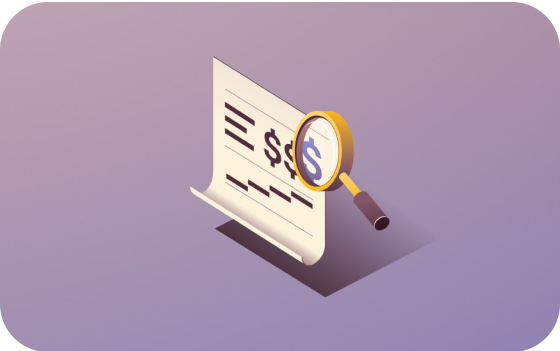Reimbursable expenses are costs that employees incur on behalf of their employer while performing work-related tasks, which the employer agrees to pay back. These expenses typically include travel, meals, lodging, and other business-related costs, as outlined in the company’s expense policy.
Examples of reimbursable expenses
Reimbursable expenses are costs employees incur during work-related activities that are eligible for repayment by their employer. Common examples include:
- Travel expenses: Costs for business-related airfare, train tickets, or fuel for business trips
- Health insurance: Premiums or claims related to work-mandated health coverage
- Medical expenses: If incurred during work travel or for on-site, job-related medical requirements
- Certain subscriptions: Work-related tools or software subscriptions required to perform job duties
For an expense to be considered reimbursable, it needs to be an out-of-pocket expense, paid by the employee using their own money. Reimbursable expenses typically include business expenses incurred while performing job duties. These costs, often referred to as employee expenses, are outlined in the company’s employee reimbursement policy and must meet specific criteria, such as being necessary and reasonable for the business.
Categories of reimbursable expenses
Reimbursable expenses can be grouped into various expense categories:
- Business travel: Costs like airfare, hotel stays, or car rentals for work trips
- Meals and entertainment: Dining costs while entertaining clients or attending work-related events
- Office supplies: Items such as pens, paper, or printers purchased for business use
These types of reimbursable expenses depend on the nature of the employee’s role and the company’s specific policies.
What's the difference between reimbursable and non-reimbursable expenses?
The main difference lies in whether the expenditures are directly tied to work-related activities and approved by company policy. Reimbursable expenses must meet the company’s predefined guidelines, while non-reimbursable expenses typically fall outside these criteria.
Non-reimbursable expenses
Certain costs are generally not reimbursable, such as:
- Personal vehicles: This includes fuel and maintenance costs, though there can be exceptions if the vehicle is explicitly approved for business use
- Certain office expenses: Like personal items an employee purchases to decorate their desk space
- Certain travel costs: Those aren’t necessary, aren’t strictly related to business travel, or fall outside the company’s expense policy. This may include luxury or premium upgrades like first-class tickets or extravagant hotel stays
Are reimbursements taxable?
Reimbursements can be taxable or non-taxable, depending on how they are handled.
For business owners, reimbursements for business-related expenses are generally considered non-taxable when substantiated with proper documentation. However, if reimbursements are not substantiated or exceed the actual expense, they may be treated as taxable income for employees. For tax purposes, businesses can often claim a tax deduction for valid reimbursed expenses.
How do you track and record reimbursable expenses?
Tracking and recording reimbursable expenses is a critical part of accurate and compliant accounting. Businesses often rely on expense management software to streamline the process.
Employees usually must submit receipts for approval. Once approved, expenses are classified under an expense account in the company’s accounting system. Approved expenses are marked as payable, so employees can receive timely reimbursement.
What is a cost-reimbursable expense?
A cost-reimbursable expense is a specific type of expense where employees or contractors pay for a business-related cost upfront and later receive refunds from their employer. These expenses must align with the company’s reimbursement policies and require clear documentation for approval.
How to create an expense reimbursement policy
A comprehensive company policy on expense reimbursement ensures fairness, consistency, and compliance. This policy should outline eligible expenses, limits, and procedures for employees to claim reimbursements.
1. Define expenses eligible for reimbursement
Start by listing all business-related expenses that qualify for reimbursement, such as travel, office supplies, and meals. If your policy will allow employees to submit claims for private vehicle use during work, be sure to include an approved mileage rate.
2. Set spending limits
Establish spending caps for specific categories like travel or meals. Setting limits will help your organization predict costs and control its budget by preventing excessive expense claims.
3. Document the submission process
Provide detailed instructions for submitting expense reports. Employees should itemize each line item, include receipts, and submit claims through the approved system (e.g., expense management software).
4. Communicate the policy to employees
Share your expense management policy in onboarding materials, training sessions, or employee handbooks to make sure it’s clearly communicated and employees have a full understanding of the reimbursement process. Clear communication will help minimize misunderstandings and encourage employees to adhere to the policy as much as possible.
Frequently asked questions about reimbursable expenses
What is an accountable reimbursement plan?
An accountable plan, as defined by the IRS, is a system where businesses reimburse employees for work-related expenses without those reimbursements being considered taxable income. To qualify, employees must provide documentation, such as receipts, and any excess amounts must be returned within a reasonable timeframe.
Are there alternatives to expense reimbursement?
Yes, one alternative is using per diem rates, which provide employees with a fixed daily allowance to cover meals, lodging, and incidental expenses during business travel. Per diems still require reimbursements to the employee, but their fixed structure helps simplify the process by eliminating the need for detailed expense reports while still adhering to company policies and IRS regulations.
How do you make sure reimbursable expenses are only for business purposes?
To be sure reimbursable expenses are strictly for business purposes, companies should require detailed receipts and proper documentation for each expense. Their expense policies should clearly outline approved categories of expenses, and supervisors or managers should review and approve all submitted claims before reimbursement. Using expense management software and tech-enabled corporate cards can make it much easier to enforce compliance and track spending accurately.
Rippling and its affiliates do not provide tax, legal, or accounting advice. This material has been prepared for informational purposes only, and is not intended to provide, and should not be relied on for, tax, legal, or accounting advice. You should consult your own tax, legal, and accounting advisors before engaging in any related activities or transactions.
















































































